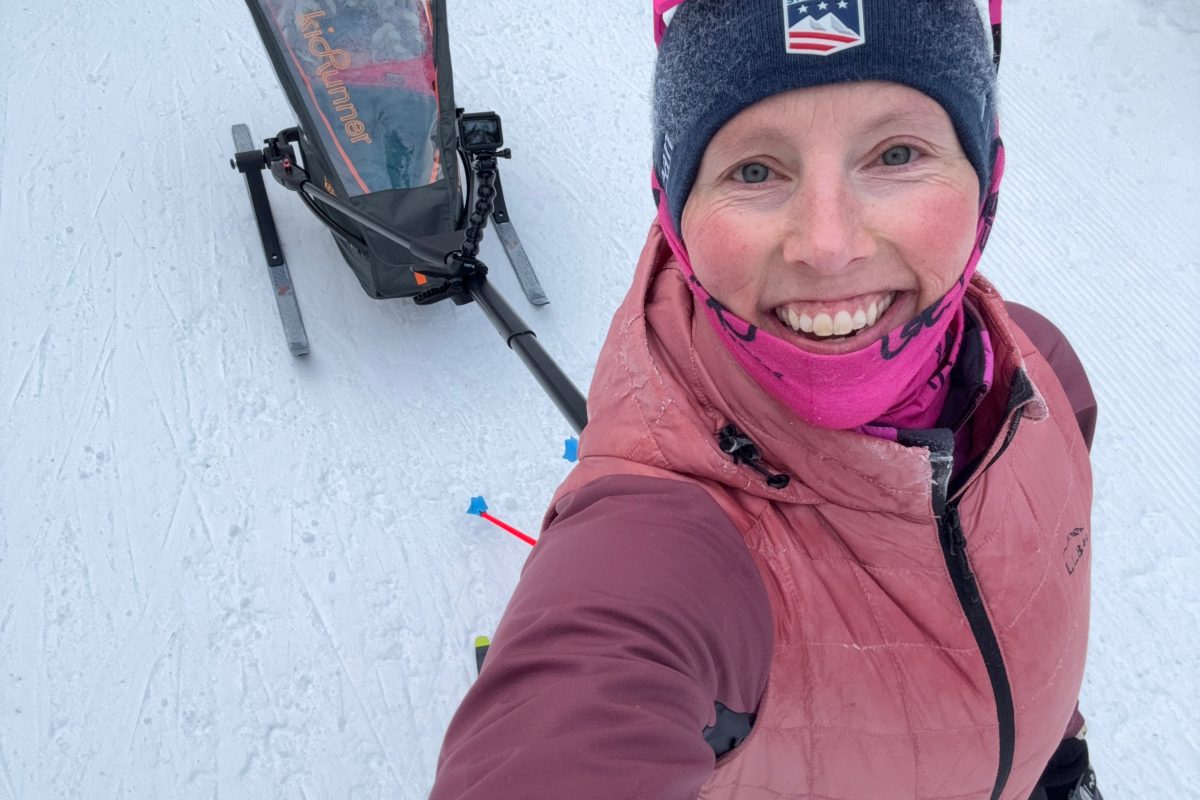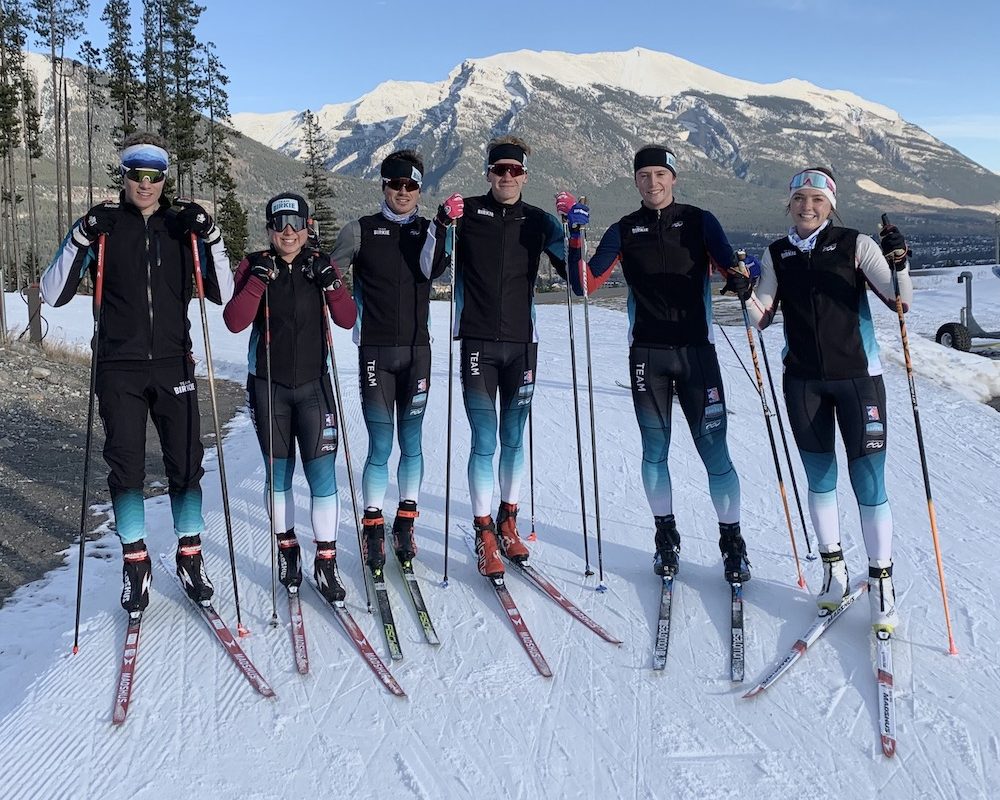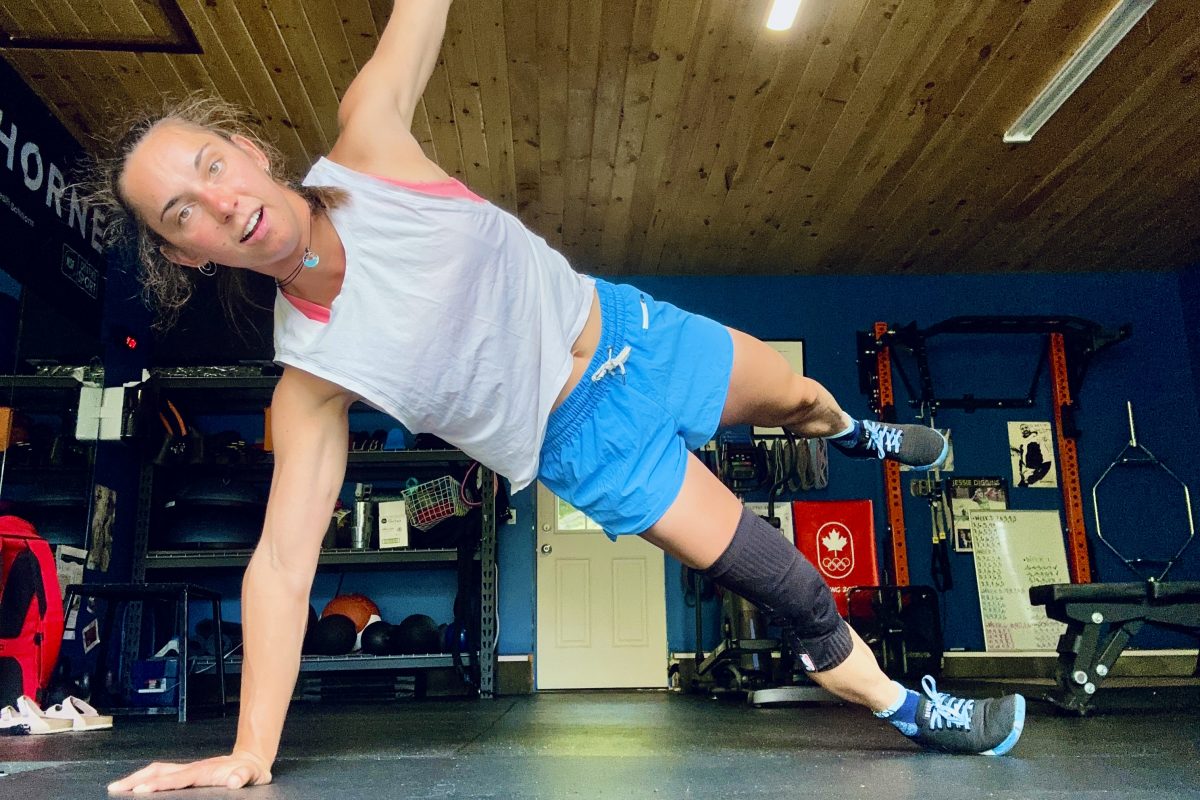A native of Germany, Juergen Uhl raced for the University of Vermont for four years, capping a dominating collegiate career with an NCAA Championship in 2009. Uhl is continuing his studies in Vermont and will be racing this season as a member of the new XCVT team. Look for an article soon on this new addition to the elite racing scene.
Technique, pacing, endurance, and mental toughness – all are worked and strengthened in Juergen Uhl’s uphill rollerski/mountain running continuous level 3 workout.
Most New Englanders are familiar with the access road up to the Bolton Valley Ski Area in Vermont. For those who have not braved the steep switchbacks in midwinter, the road climbs 1,700 feet in just over four miles to the base of the alpine mountain and nordic stadium.
Uhl starts his workout at the bottom of the road, classic skiing until reaching the parking lot at the top. There he quickly changes into running shoes and continues up the cat track to the summit of the alpine mountain.
The rollerski section takes 35 to 40 minutes, and the run an additional 20, making for a solid hour at high level 3.

The effort yields multifaceted benefits, making the logistics worth it: Uhl drives up the road after ditching his skis at the bottom, then parks his car and bikes back down to the start.
Any intensity workout of this duration is good for endurance, and Uhl’s climb is no exception.
“It is important that I can maintain a high pace all the way up,” Uhl said. “We always used to do this at home [in Germany], to get the endurance for a 30-minute race.”
Pacing is critical, and another chance for improvement. “If you know the distance, it is really easy to learn how to pace yourself,” says Uhl. And the challenging course provides powerful feedback if you make a go out too hard.
It is also an opportunity to work on technique. The long duration and the hard, yet steady pace make it easy to evaluate form.
The steep grade means that a majority of the workout is striding – there are only a few stretches of double pole terrain measuring a few hundred meters in length.
“I know right away if my technique falls apart,” Uhl said.
But endurance and technique alone do not set a workout apart. Uhl likes the opportunity to push his limits, and in doing so build his mental toughness – perhaps the key ingredient in a successful ski racer.
Uhl describes the point in many workouts, and most races, where you don’t believe you can keep going.
“Even at level 3, as you go up the hill, there will be a point where you think ‘I can’t do it,’ but you go one to two minutes longer and all of a sudden you can go again.
“It [the workout] trains me to get through that hard time. You fight your way through it, and you will be fine,” he said.
For Uhl, these workouts are even tougher than an actual race.
“By doing this you toughen up to a point where a race feels not as hard anymore. It strengthens your mind. You can train that.”
Being well-prepared for this level of effort is key, and Uhl rarely struggles with that. He focuses on bringing his “A-game,” and doing the mental and physical preparation necessary to tackle the tough workout.
The rollerskiing/running combo may not be for everyone, but it allows Uhl to extend the workout, and to add some variety.
“To me, it is really nice to mix up the workout that way. It makes the run a little harder in the end,” he said.
Over the course of the summer and into the early fall, he will do this type of workout four to five times, usually alone. The solo nature of the workout is due mainly to a lack of training partners at a similar fitness level.
It also allows Uhl to stay connected to a part of his past – as a junior skier in Germany, he also competed in mountain running, and qualified for the World Junior Championships in the sport.
These workouts give him a chance to experience aspects of competitive mountain running again.
“When I see a mountain I really like to push myself to run up it,” Uhl said.
Topher Sabot
Topher Sabot is the editor of FasterSkier.



